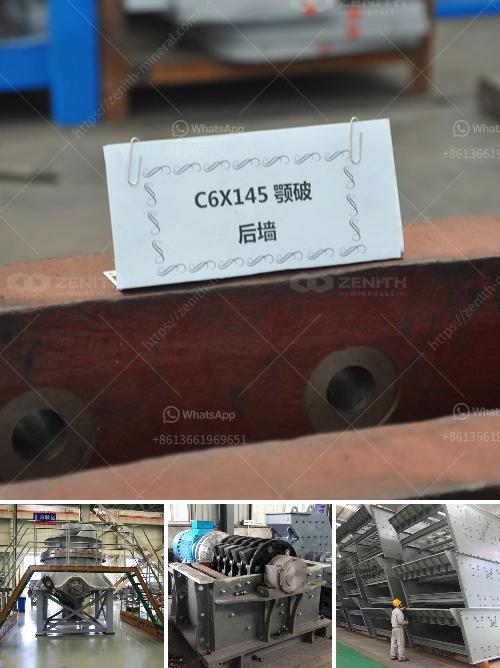Operating a portable cone crusher safely and efficiently involves several key steps and considerations:
-
Preparation:
- Training: Ensure operators are well-trained on the machine and understand safety protocols.
- Inspection: Conduct a thorough pre-operation inspection, checking all components, including the frame, bearings, wear parts, and hydraulic system.
- Environment: Ensure that the worksite is clear of bystanders, obstacles, and other hazards.
-
Setup:
- Placement: Position the crusher on a firm, level surface away from traffic. Use stabilizers if necessary.
- Power Supply: Ensure the crusher is connected to an appropriate power source (either diesel or electric, as applicable).
- Feed Material: Check that the material to be crushed is suitable for the crusher and is within the maximum feed size limits.
-
Starting the Crusher:
- Sequence: Start the auxiliary systems first (e.g., conveyors, screening equipment), then start the crusher.
- Controls: Familiarize yourself with the control panel and test emergency shut-off mechanisms.
-
Feeding the Crusher:
- Consistent Feed Rates: Ensure a consistent feed rate to avoid overloading, which can lead to blockages or reduced efficiency.
- Monitoring: Continuously monitor the feed material and adjust the feed rate if necessary. Watch for oversized materials that could damage the machine.
-
Operation:
- Control Settings: Adjust speed and other settings according to the material and desired product size.
- Regular Monitoring: Keep a close eye on the operational parameters and listen for any unusual noises. Regularly check the machine for signs of wear or damage.
- Dust Control: Implement dust suppression measures, such as water sprays or dust extraction systems, to minimize airborne particles.
-
Shutting Down:
- Orderly Shutdown: Stop the feeder first, then allow the crusher to clear any remaining material before shutting down the crusher itself.
- Post-Operation Inspection: After shutdown, inspect the crusher for any wear or damage.
-
Maintenance:
- Routine Checks: Perform regular maintenance checks as specified in the manufacturer’s manual, including lubrication, part replacement, and system checks.
- Record Keeping: Keep detailed records of operation and maintenance activities for reference and accountability.
-
Safety:
- Personal Protective Equipment (PPE): Ensure that all operators wear appropriate PPE, such as hard hats, safety glasses, gloves, and hearing protection.
- Lockout/Tagout Procedures: Follow proper lockout/tagout procedures to ensure the machine is safely turned off and cannot be accidentally started during maintenance.
By following these guidelines, you can operate a portable cone crusher safely and efficiently, minimizing downtime and maximizing productivity.

